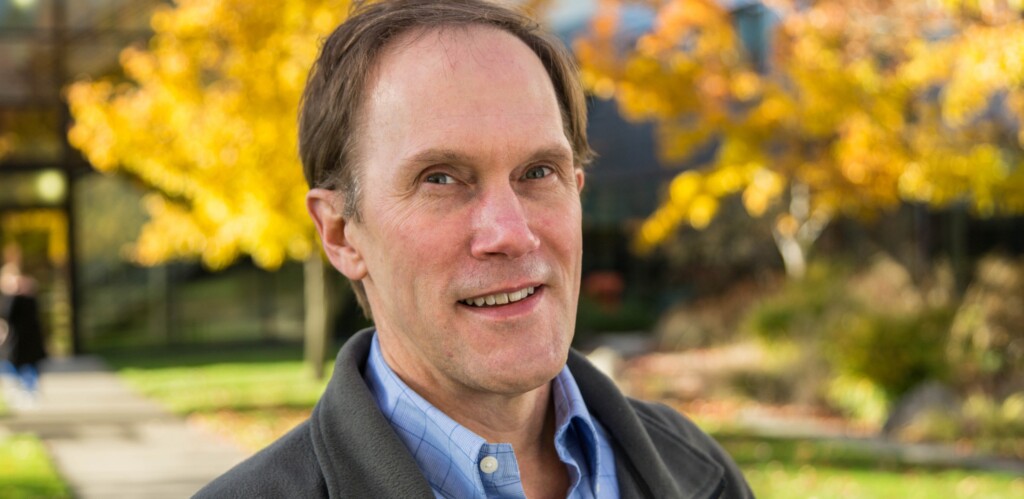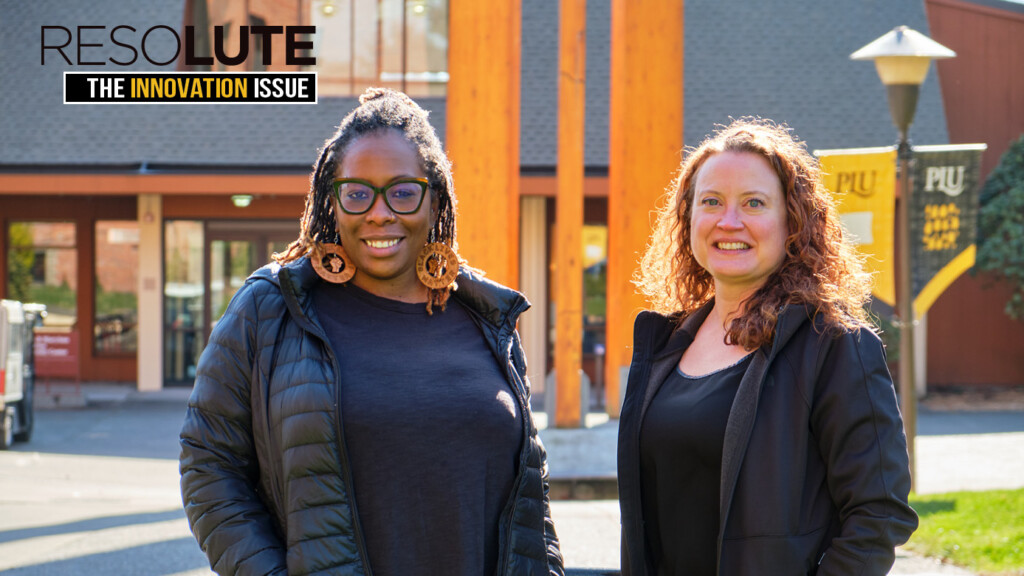Page 435 • (14,028 results in 0.062 seconds)
-

use grows. “I am excited about this NSF award because it will continue to support my research program, bringing needed research experiences to three undergraduate students each of the next three summers,” said Dean Waldow. That research will include collaborations with scientists at other academic institutions and use of instrumentation at national facilities as needed. The scientific workforce will be supported through the direct involvement of undergraduate students in all aspects of this
-
Pacific Lutheran University and its service providers strive to maintain an atmosphere in which learning and research flourish. Essential to realizing this goal are electronic communications, administrative information systems, network services, and other electronic resources provided by the university. Essential, too, is that PLU community members are secure, safe, and free from harassment in their use of these systems. To this end, members of the PLU community should have no expectation of
-
be followed by an in-text citation or a footnote to be identified. Citation Steps for All Styles Regardless of which citation style you have to use in your writing, there are a few things to keep in mind as you do your research and begin to write. Following these reminders will also help you stay organized as you begin to identify sources for your research. Identify the citation style required for your paper or project. This information can be found in your assignment description, or by
-
253.535.7237 www.plu.edu/honors/ dowland@plu.edu Seth Dowland, Ph.D., Director International Honors Requirements7 courses, 28 semester hours distributed as follows: IHON 111 – 112: Origins of the Contemporary World 8 semester hours Normally taken sequentially in the first year. These courses explore the historical roots and global dimensions of contemporary events, values and traditions. IHON: Four 200-level courses 16 semester hours Normally taken in the second and third year. A wide range of
-
yourself as a “Student Researcher – Undergraduate.” For Office Phone, you may use the Human Participants Review Board number: 253-535-8312. For Step 7, Question 1, select “Social/Behavioral Investigators and Key Personnel.” For Question 2, DO NOT CHECK ANY OF THE BOXES. For Questions 3 and 5, please check, “Not at this time.” For Question 4, do not select anything. During registration, when asked which course you would like to take, select ONLY “Social/Behavioral Investigators and Key Personnel.” This
-

it mean to call the work of equity “innovative”? As a concept, innovation can be used interchangeably with words like ingenuity, progress, newness, novelty or breakthrough — all seemingly “positive” connotations. But when the question of how a focus on equity in academic institutions like PLU may be “innovative,” some compelling questions arise. As one PLU graduate puts it: “Why does the humanization of people have to be flashy and sexy?” So. That’s where this conversation begins — by troubling
-
Support for VHS Videos Playback in Classrooms Posted by: Jenna S / May 14, 2013 May 14, 2013 by Steve Sosa For over 25 years and the clear winner of the videotape format wars, VHS tapes have earned their place in history. Now though, VHS tapes are practically given away as DVDs have replaced this aging format. What this means at PLU is that what was once standard classroom technology is becoming obsolete. As of this spring, we are no longer able to purchase VHS video tape players for classrooms
-
Refugee Children: 50 Children and Beyond 10:00 a.m. – 11:40 a.m. Hindsight makes the U.S. immigration policies of the 1930s and 1940s look particularly cruel, as so many European Jewish refugees were denied visas. This panel will address the role of humanitarianism in times of violent global crises by exploring the range of prejudices, laws, and economic factors that made it so hard to rescue refugee children 70-80 years ago. Panelists: Steven Pressman, director/producer/writer of 50 Children: The
-
New Faculty Orientation SoN Faculty Orientation A New Faculty Orientation program, typically ½ day in length, will be held every fall semester at the beginning of the academic year. The orientation will be coordinated by the RAD committee and SoN administration, and will complement PLU university orientation activities by highlighting SoN-specific information, processes, and guidelines. The goal of New Faculty Orientation is to facilitate and support assimilation to your new role as a member of
-
July 8, 2008 Spanning the globe during J-Term 2008 In January more than 400 students were sojourners in 21 countries across the globe as once again PLU classes convened on all seven continents. ANTARCTICA Journey to the End of the Earth From the great South American city of Buenos Aires, Argentina, to the tip of the continent in Patagonia and Tierra del Fuego, students explored some of the grandest scenery in the world. Patagonia served as a jumping-off point for 11 days in Antarctica – all
Do you have any feedback for us? If so, feel free to use our Feedback Form.


